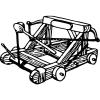Search Results
Showing results 541 to 560 of 1904

Altered Reality
Source Institutions
In this activity, learners discover that the human brain is highly adaptable. Learners try to toss beanbags at a target while wearing prism goggles.

Foam Tower
Source Institutions
In this activity (page 1 of the PDF under SciGirls Activity: Water Slides), learners will whip up some suds with a cup of water and a tablespoon of dish soap until the bubbles are stiff enough to star

Motion Madness: Choose the Winner
Source Institutions
This is an online game that explores speed, range and momentum. Learners will pick the winners in a 16-team tournament in 3 events: Tug-o-war, sprint, and marathon.
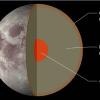
Recipe for a Moon
Source Institutions
In this activity, learners discover that the Moon, like Earth, is made up of layers of different materials. Learners work in teams to make models of the interiors of the Moon and Earth.

Blow-and-Go Parachute
Learners make a skydiver and parachute contraption and launch it. They see that the drag created by air resistance slows the descent of skydivers as they travel back to Earth.
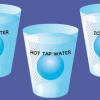
What Counts in Bounce
Source Institutions
In this activity learners compare the bounciness of warm and cold racquetballs to see if temperature makes a difference in how well they bounce.
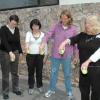
Let's Make a Supernova!
Source Institutions
This fun and simple hands-on astronomy activity lets learners explore what happens when a star explodes.

Crystal Gardens
Source Institutions
In this activity, which requires adult supervision, learners get to explore the awesome power of chemistry.

Glowing Pickle
Source Institutions
In this activity, high voltage is applied across a pickle to emit a yellow glow. This activity should only be conducted by skilled adults and is best suited as a demonstration.
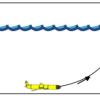
Exploring the Ocean with Robots
Source Institutions
In this activity, learners are introduced to robotic submarines called gliders. Learners make “gliders” from plastic syringes and compare these to Cartesian bottles and plastic bubbles.
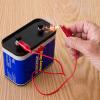
Short Circuit
Source Institutions
In this activity about electricity, learners explore what happens when you blow a fuse.
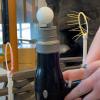
Bernoulli Obstacle Course
Source Institutions
In this activity, learners create their own obstacle course based on Bernoulli's Principle and try to get a floating ball from the start of their course to the finish line.

Gravestone Weathering
Source Institutions
In this activity (located on pages 9-14 of PDF), learners visit a cemetery to examine the distinguishing characteristics of rock weathering.

Change in Temperature: Endothermic Reaction
Source Institutions
Learners investigate signs of a chemical reaction when they mix vinegar and baking soda. In addition to a gas being produced, learners also notice the temperature decreases.

Temperature Affects the Solubility of Gases
Source Institutions
In this activity, learners heat and cool carbonated water to find out whether temperature has an effect on how fast the dissolved gas leaves carbonated water.
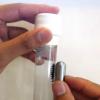
Exploring Materials: Ferrofluid
Source Institutions
In this activity, learners discover that a material can act differently when it's nanometer-sized.
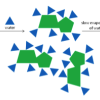
Chemistry in the Kitchen
Source Institutions
In this kitchen chemistry activity, learners explore the chemistry of crystals by making sugar crystals, consider a common chemical reaction type responsible for the rising of muffins and cake in the

Mirror Reversal
Source Institutions
Challenge popular misconceptions, learners explore how a mirror actually reflects an image in this activity.
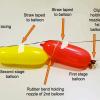
Achieving Orbit
Source Institutions
In this Engineering Design Challenge activity, learners will use balloons to investigate how a multi-stage rocket, like that used in the Interstellar Boundary Explorer (IBEX) mission, can propel a sat

